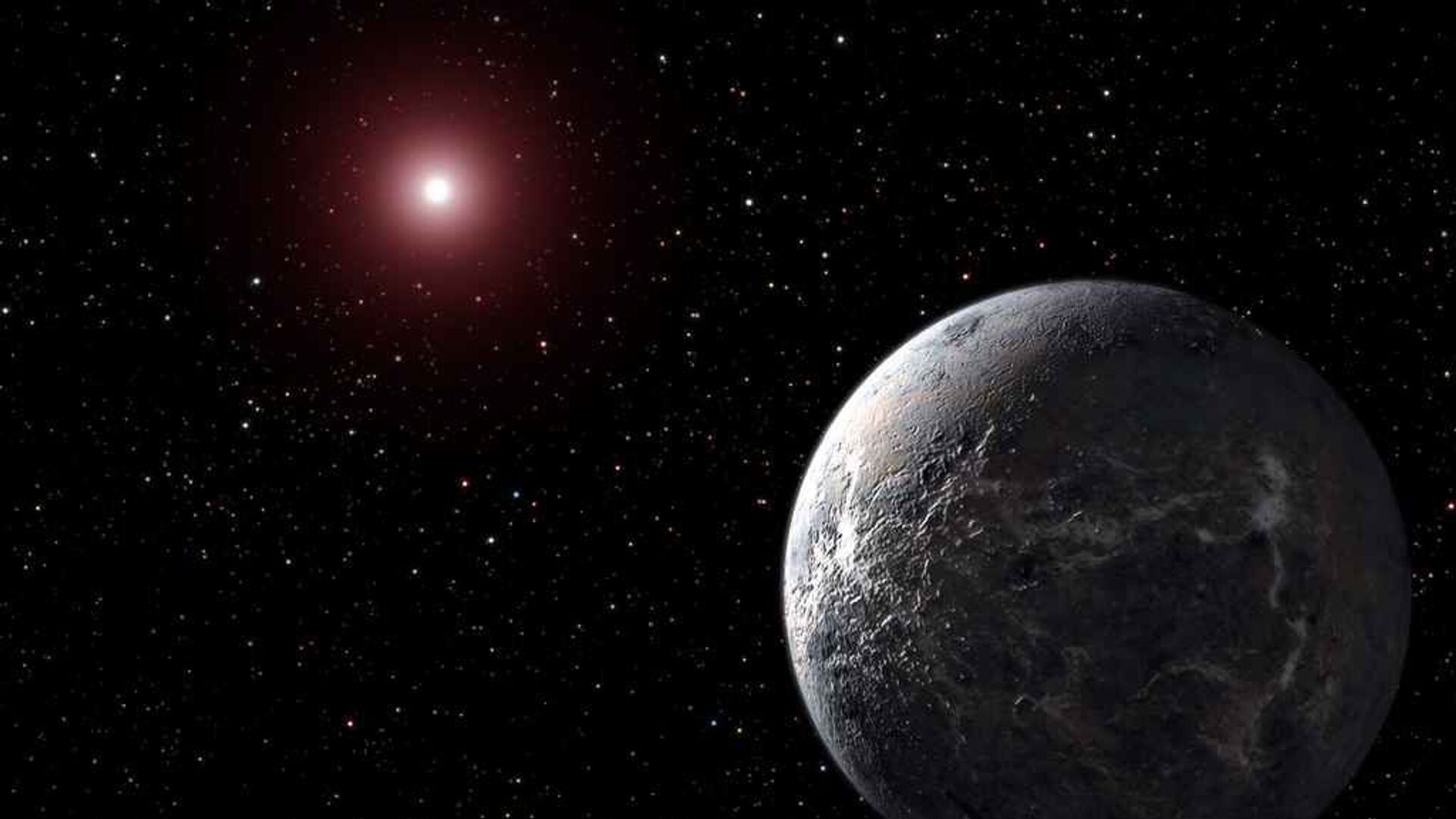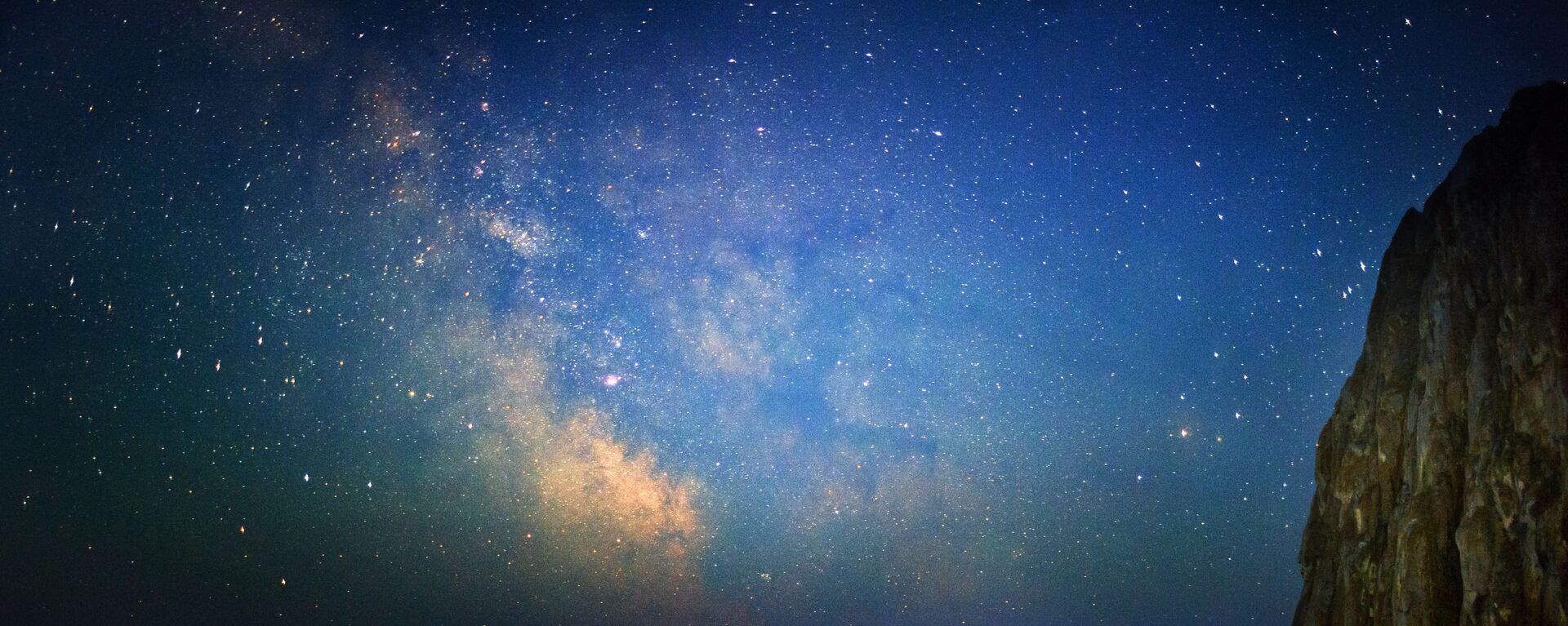https://sputnikglobe.com/20231017/russias-spektr-uv-space-telescope-to-be-fully-equipped-with-domestic-gear-scientist-1114263075.html
Russia's Spektr-UV Space Telescope to Be Fully Equipped With Domestic Gear - Scientist
Russia's Spektr-UV Space Telescope to Be Fully Equipped With Domestic Gear - Scientist
Sputnik International
All issues related to replacing foreign instruments for Russia's Spektr-UV space telescope, which is similar to NASA's Hubble, have been successfully resolved, and it will be launched into orbit in 2029, said Mikhail Sachkov, director of the Institute of Astronomy of the Russian Academy of Sciences.
2023-10-17T15:27+0000
2023-10-17T15:27+0000
2023-10-17T15:27+0000
beyond politics
space telescope
science & tech
https://cdn1.img.sputnikglobe.com/img/107857/95/1078579551_0:97:1024:673_1920x0_80_0_0_fe66da1184959b94dd540dbf752f4c6d.jpg
"There are no technological or organizational problems in the scientific equipment package of Spektr-UV. All issues related to import substitution and independence have been resolved," Sachkov said during a conference at the Russian Academy of Sciences in Moscow. The Russian space telescope will be launched into orbit by the end of 2029, the scientist added. The launch was previously expected to be carried out by the end of 2028. Japanese and Spanish scientific equipment was also expected to be used. However, in December 2022, the project's chief designer, Sergey Shostak, said that the participation of Japan and Spain in developing Spektr-UV remained an open question. Therefore, the Russian scientists had to work out how to replace these instruments with domestic ones. In terms of its characteristics, Spektr-UV is similar to NASA's Hubble Space Telescope, which was launched into low Earth orbit in 1990 and could be deorbited in the mid-2030s. Spektr-UV will study galaxies, new stars and extrasolar planets, as well as processes in the atmospheres of planets, comets and other bodies in the solar system. It will also search for signs of life on already discovered extrasolar planets.
https://sputnikglobe.com/20230806/greatest-eurasia-solar-telescope-construction-begins-in-russia-1112429061.html
Sputnik International
feedback@sputniknews.com
+74956456601
MIA „Rossiya Segodnya“
2023
Sputnik International
feedback@sputniknews.com
+74956456601
MIA „Rossiya Segodnya“
News
en_EN
Sputnik International
feedback@sputniknews.com
+74956456601
MIA „Rossiya Segodnya“
Sputnik International
feedback@sputniknews.com
+74956456601
MIA „Rossiya Segodnya“
russia space telescope, spektr-uv space telescope
russia space telescope, spektr-uv space telescope
Russia's Spektr-UV Space Telescope to Be Fully Equipped With Domestic Gear - Scientist
MOSCOW (Sputnik) - All issues related to replacing foreign instruments for Russia's Spektr-UV space telescope, which is similar to NASA's Hubble, have been successfully resolved, and it will be launched into orbit in 2029, the director of the Institute of Astronomy of the Russian Academy of Sciences, Mikhail Sachkov, said on Tuesday.
"There are no technological or organizational problems in the scientific equipment package of
Spektr-UV. All issues related to import substitution and independence have been resolved," Sachkov said during a conference at the Russian Academy of Sciences in Moscow.
The Russian space telescope will be launched into orbit by the end of 2029, the scientist added.
The launch was previously expected to be carried out by the end of 2028. Japanese and Spanish scientific equipment was also expected to be used. However, in December 2022, the project's chief designer, Sergey Shostak, said that the participation of Japan and Spain in developing Spektr-UV remained an open question. Therefore, the Russian scientists had to work out how to replace these instruments with domestic ones.
In terms of its characteristics, Spektr-UV is similar to NASA's Hubble Space Telescope, which was launched into low Earth orbit in 1990 and could be deorbited in the mid-2030s.
Spektr-UV will study galaxies, new stars and extrasolar planets, as well as processes in the atmospheres of planets, comets and other bodies in the solar system. It will also search for signs of life on already discovered extrasolar planets.



